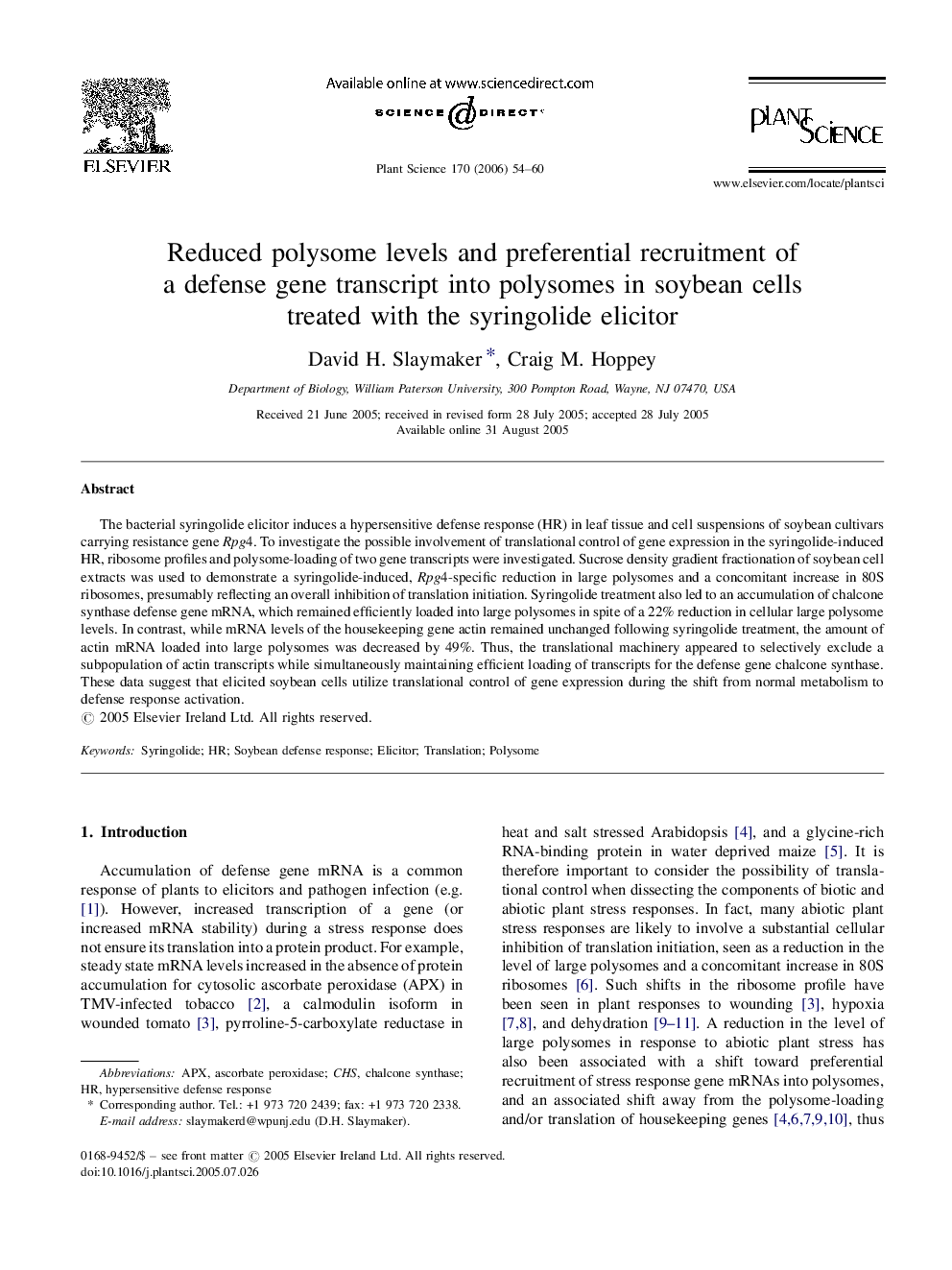| Article ID | Journal | Published Year | Pages | File Type |
|---|---|---|---|---|
| 2018798 | Plant Science | 2006 | 7 Pages |
The bacterial syringolide elicitor induces a hypersensitive defense response (HR) in leaf tissue and cell suspensions of soybean cultivars carrying resistance gene Rpg4. To investigate the possible involvement of translational control of gene expression in the syringolide-induced HR, ribosome profiles and polysome-loading of two gene transcripts were investigated. Sucrose density gradient fractionation of soybean cell extracts was used to demonstrate a syringolide-induced, Rpg4-specific reduction in large polysomes and a concomitant increase in 80S ribosomes, presumably reflecting an overall inhibition of translation initiation. Syringolide treatment also led to an accumulation of chalcone synthase defense gene mRNA, which remained efficiently loaded into large polysomes in spite of a 22% reduction in cellular large polysome levels. In contrast, while mRNA levels of the housekeeping gene actin remained unchanged following syringolide treatment, the amount of actin mRNA loaded into large polysomes was decreased by 49%. Thus, the translational machinery appeared to selectively exclude a subpopulation of actin transcripts while simultaneously maintaining efficient loading of transcripts for the defense gene chalcone synthase. These data suggest that elicited soybean cells utilize translational control of gene expression during the shift from normal metabolism to defense response activation.
